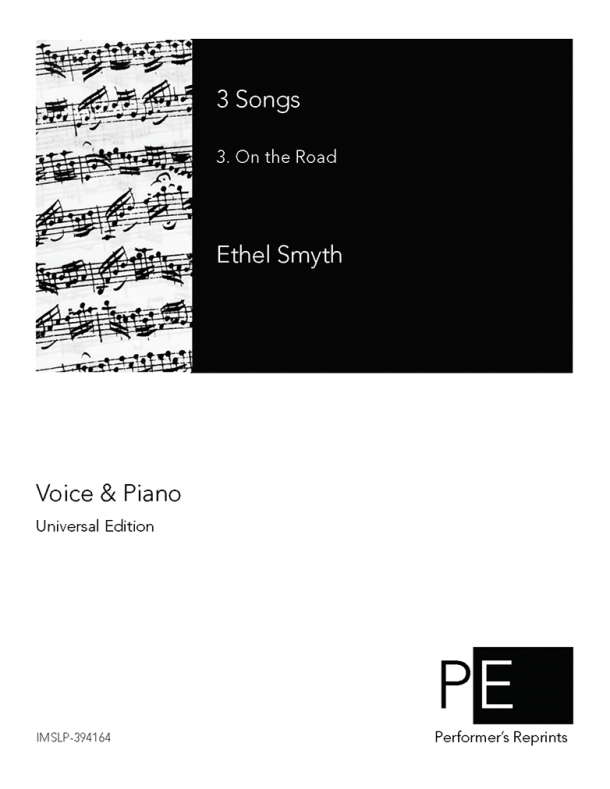Obscure Music Monday: Smyth's 3 Songs, No. 3: On The Road
Dame Ethel Mary Smyth DBE (April 22,1858 - May 8, 1944) was an English composer and member of the women's suffrage movement. The fourth of eight children, Smyth showed a keen interested in music as a career. Her father, a major general in the Royal Artillery, was not particularly supportive, though that didn't stop her from pursuing music anyway. Smyth studied privately, and then attended the Leipzig Conservatory. She wrote orchestral and choral works, chamber pieces, operas, and works for piano. Sadly deafness brought her musical career to an end, but between 1919 and 1940, she found herself an author, writing ten successful books.
Smyth wrote 3 Songs for voice and piano in 1913, and the third movement, which we are looking at today, is titled On The Road. Smyth set this movement to a poem by Ethel Carnie Holdsworth, and dedicated it to Christabel Pankhurst, a British suffragette. The words are as such:
O, the beat of the drums,
And the sheen of the spears.
And red banners that toss like the sea,
Better far than the peace
That is fraught with deep death
To the wild rebel soul set in me;
Better pour out the blood in a swift crimson flood,
As to music we march to the grave,
Than to feel day by day the slow drops ebb away
From the chain-bitten heart of a slave.
0, to fight to the death,
With a hope through the strife
That the freedom we seek shall be ours,
Better far than despair
And the coward's weak words
Trembling back from the front of the Powers.
Better do, dare, and fail, than shake like a leaf pale
In the breath of the wild autumn wind:
Better death on the field with an honor bright shield
Than the soft bed that coward souls find.
0, we leave hearth-stone warm
For the rain-beaten roads.
And our arrows are hung at our sides:
Freedom dearer to us
Than the home that we leave,
Or the warm, clinging arms of the bride.
For our children's fair eyes, like the blue of the skies,
Foemen's gleaming with hate, chill as steel;
For the Mother-love touch that which smites over-much
Till the life, stricken deep, earthward reels.
We have waited so long
We can wait now no more,
And we march forth, our Freedom to meet;
Keeping step to a tune
That is brave as our hearts.
Whilst the stones clatter loud to our feet.
Can we fail when we fight for the sake of the light
From the hearths where our cradles have stood?
For the fathers long dead, for the races ahead
That shall spring up like flowers from our blood?
This piece is very much a march, which you can hear right from the beginning in the piano, and the words very clearly indicate a valiant fight for freedom. The vocal part is fittingly dramatic, and meant to be sung with great conviction. While in a minor key for most of the piece, the last few lines are hopeful, and in set in a major key.
Thankfully, there's a recording of this work for you to enjoy!


